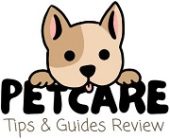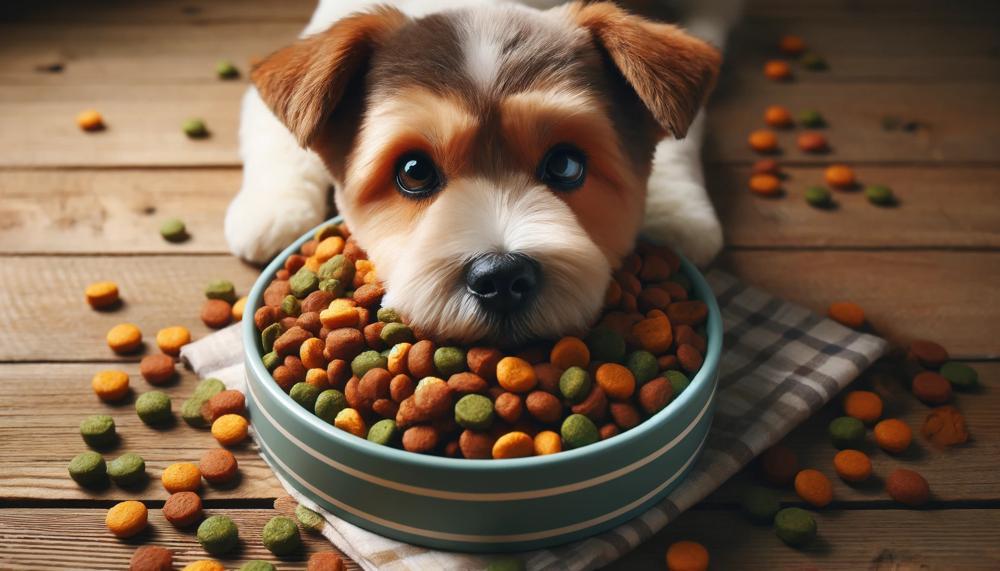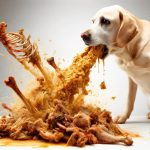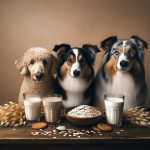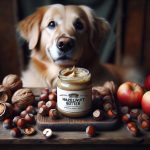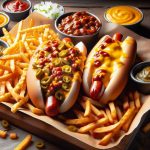When it comes to their nutrition, we strive to make the right choices. But with a sea of options available, selecting the perfect food for our dogs can be quite daunting. While wet food may seem like the obvious choice, have you ever wondered why your dog gorges on dry food? Well, turns out there are some fascinating reasons behind this preference.
Dogs gorging on dry food can be attributed to a few factors:
- It’s in Their DNA: Dogs’ ancestors had to scavenge and hunt for food, and they didn’t know when their next meal would come. This survival instinct can still influence modern dogs’ behavior.
- Feast or Famine: In the past, when dogs found food, they ate as much as they could to store energy for times when food was hard to find. Some dogs still act like they’re starving even when they eat regularly.
Overeating dry food can lead to several health issues:
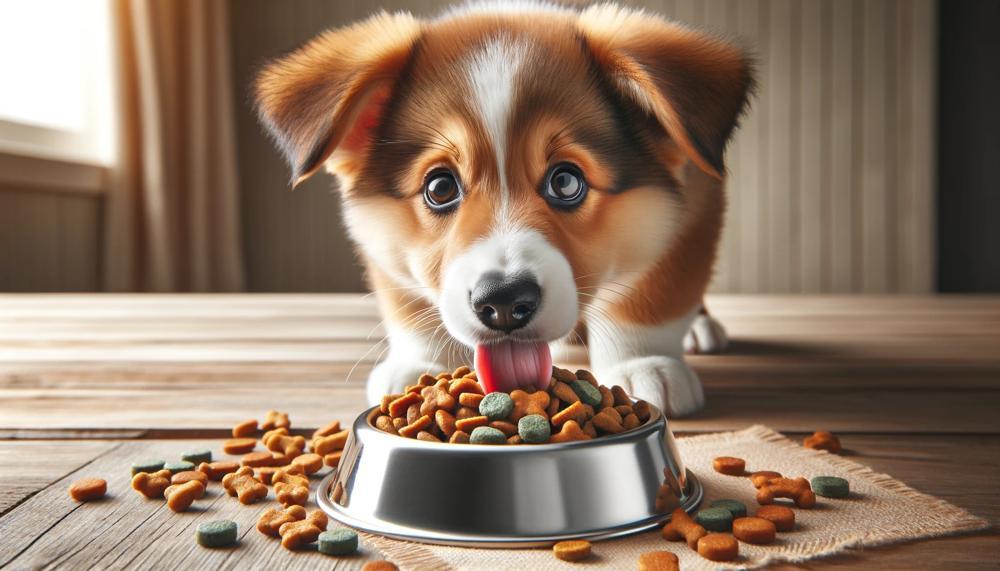
Can A Dog Eat Too Much Dry Food?
Table of Contents
The answer is yes, and the consequences can be serious. Overeating can lead to gastrointestinal issues, obesity, and even life-threatening conditions like bloat. As dog owners, it is crucial to understand the risks and take preventive measures to avoid overeating.
Some consequences of a dog consuming excessive amounts of dry food include increased gas, lethargy, vomiting, diarrhea, and other stomach problems. These issues can cause discomfort, dehydration, and even affect their daily activities as their body works overtime to digest the excess food.
However, the most severe consequence of overeating is bloat – a condition where gas accumulates in the stomach, causing it to twist and potentially cut off blood circulation to the heart. Bloat is a medical emergency that requires immediate veterinary attention.
To prevent overeating, proper storage of dry food and using slow feeder bowls to slow down eating can be helpful. It is also essential to monitor meal times according to feeding guidelines. Additionally, understanding that dogs have natural instincts from their scavenger ancestors can help us recognize their tendency to overeat if given the opportunity.
If you notice any signs of overeating or bloat in your dog, it’s vital to stay calm and seek immediate veterinary care.
What Happens If A Dog Eats Too Much Dry Food?
| Preventive Measures | Description |
| Slow down their eating pace | Some dogs have a habit of eating too quickly, which can lead to overeating. To prevent this, try feeding your dog smaller portions at a time or using a slow feeder bowl. |
| Utilize floating kibble | Adding floating kibble to a water bowl not only helps hydrate your dog, but it also slows down their eating speed. |
| Invert the food bowl | This creates an obstacle that forces your dog to eat slower and prevents overeating. |
| Use a muffin pan | Another way to slow down your dog’s eating is by using a muffin pan. This separates the food into smaller portions, making it more challenging for them to overeat. |
| Separate dogs if you have multiple | In households with multiple dogs, competition for food can lead to overeating in some dogs. It is recommended to feed each dog separately to prevent overeating. |
| Vary the eating schedule | If your dog consistently overeats, it may be beneficial to make changes to their eating schedule. This can include smaller but more frequent meals throughout the day or setting a specific feeding time and sticking to it. |
To maintain their health and well-being, it is essential for dog owners to take preventive measures and ensure their dogs do not overeat dry food.
As always, it is important to monitor your dog’s eating habits and consult with a veterinarian if you notice any concerning changes.
By following these strategies, you can prevent discomfort, dehydration, and life-threatening conditions like bloat in your beloved furry friend.
Remember to keep a watchful eye on your dog’s eating habits and make necessary adjustments to their diet and routine as needed.
Does Dry Food Cause Bloat in Dogs?
Unfortunately, the answer is yes. There are a multitude of potential risks that come with feeding your dog dry food, including an increased risk of bloat, disruption of gut bacteria balance, and digestive issues due to harmful additives and preservatives.
Bloat, also known as gastric dilatation-volvulus (GDV), is a serious and potentially life-threatening condition that occurs when the stomach becomes distended with gas or fluid. In some cases, this can be caused by dry food expanding when it comes into contact with liquid in the stomach. This can lead to a dangerous situation for our canine companions.
Dry food typically contains high levels of carbohydrates, which can have a negative impact on the balance of bacteria in the gut. This disruption can cause digestive issues and discomfort for our dogs.
Additionally, the additives and preservatives commonly found in dry food can irritate the digestive system and even cause inflammation.
How Does a Healthy Diet Help My Dog?
A well-rounded and nutritious diet is vital for your furry companion’s overall health and vitality. Similar to us, dogs require a diverse range of nutrients to maintain a healthy body and prevent various health complications. A diet filled with high-quality ingredients can also help avoid excessive consumption of dry food, which can lead to obesity, digestion issues, and nutrient deficiencies.
To ensure a healthy diet for your dog, it is crucial to include high-quality sources of protein, healthy fats, carbohydrates, vitamins, and minerals. Protein is especially important for dogs as it plays a significant role in building and maintaining strong muscles. Therefore, when choosing dog food, make sure that the primary ingredient is real meat to guarantee sufficient protein intake.
Apart from protein, healthy fats are also an essential part of a dog’s diet. These fats provide energy and aid in nutrient absorption. Nevertheless, it is crucial to opt for quality fat sources such as fish oil or chicken fat rather than unhealthy options like animal by-products.
Carbohydrates are another critical component of a balanced diet for dogs. They provide energy and support digestive processes. When selecting carbohydrates for your dog’s diet, opt for complex sources like sweet potatoes or brown rice instead of simple ones such as corn or wheat.
Vitamins and minerals are equally essential for your dog’s health. These micronutrients are involved in various bodily functions and can prevent deficiencies that may lead to health complications. For instance, vitamin A promotes good eyesight while calcium is necessary for strong bones.
By providing your dog with a well-balanced diet consisting of high-quality ingredients, you can ensure they receive all the necessary nutrients for optimal health. This not only prevents overconsumption of dry food but also promotes their overall well-being and longevity.
How Do I Help My Dog With Bloat? Preventing GDV
Your furry companion’s well-being should always be a top priority, and taking proactive steps can help avoid serious health issues like bloat and GDV. Here are some helpful measures you can take to prevent these conditions:
- Opt for smaller meals: Rather than feeding your dog one large meal, consider breaking it up into two or three smaller meals throughout the day. This can significantly decrease the chances of bloating and GDV.
- Avoid stress and exercise after eating: Stress and physical activity can raise the risk of bloat and GDV, especially if done immediately after a meal. Allow your dog to rest for at least an hour before or after their meal.
- Exercise at appropriate times: While regular exercise is essential for your dog’s overall health, make sure to schedule it at least one hour before or two hours after their meal.
- Steer clear of high-fat foods: Fatty foods can be challenging for dogs to digest and can heighten the risk of bloat and GDV. Stick to a well-balanced diet with superior quality protein and healthy fats.
- Keep an eye on water consumption: Consuming too much water too quickly can also increase the risk of bloat. Monitor your dog’s water intake, especially after meals.
- Consider using a slow feeder: Slow feeders are an excellent tool for preventing bloat by slowing down your dog’s eating pace and minimizing the amount of air they ingest while eating.
By following these preventative measures, you can proactively safeguard your dog’s health and minimize the chances of bloat and GDV. However, if you notice any symptoms of these conditions, it is crucial to seek immediate veterinary care.
Conclusion
As devoted pet owners, we always want to make the best choices for our furry companions, especially when it comes to their nutrition.
While wet food may seem like the obvious choice, there are some intriguing reasons why dogs have a preference for dry kibble. Not only is it convenient and cost-effective, but it also satisfies their natural instincts.
However, it’s important to be aware that dogs can easily overeat on dry food, leading to serious consequences such as bloat. To prevent this from happening, we must take proactive measures such as slowing down their eating pace and varying their meal schedule.
By understanding and addressing their gorging behavior on dry food, we can ensure our beloved pets live happy and healthy lives.
